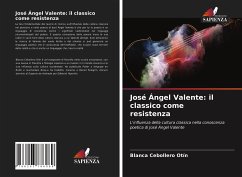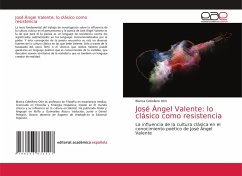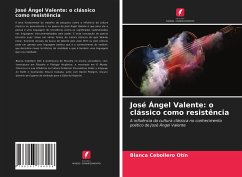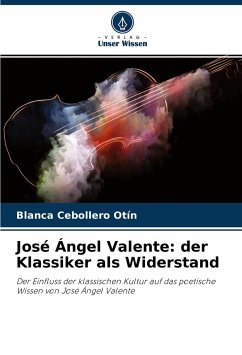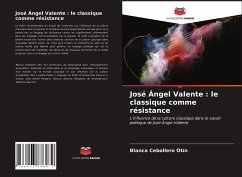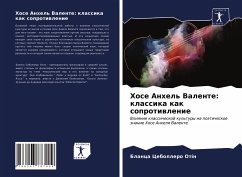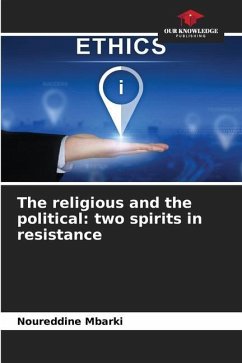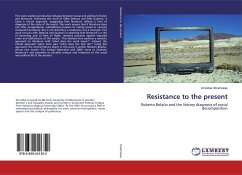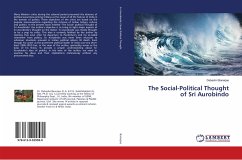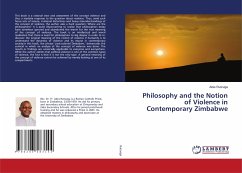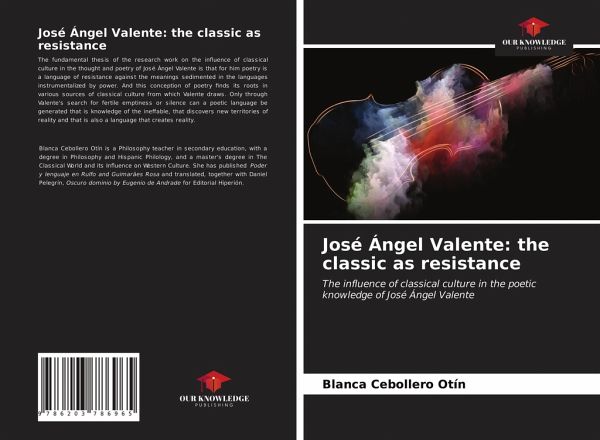
José Ángel Valente: the classic as resistance
The influence of classical culture in the poetic knowledge of José Ángel Valente
Versandkostenfrei!
Versandfertig in 6-10 Tagen
27,99 €
inkl. MwSt.

PAYBACK Punkte
14 °P sammeln!
The fundamental thesis of the research work on the influence of classical culture in the thought and poetry of José Ángel Valente is that for him poetry is a language of resistance against the meanings sedimented in the languages instrumentalized by power. And this conception of poetry finds its roots in various sources of classical culture from which Valente draws. Only through Valente's search for fertile emptiness or silence can a poetic language be generated that is knowledge of the ineffable, that discovers new territories of reality and that is also a language that creates reality.The ...
The fundamental thesis of the research work on the influence of classical culture in the thought and poetry of José Ángel Valente is that for him poetry is a language of resistance against the meanings sedimented in the languages instrumentalized by power. And this conception of poetry finds its roots in various sources of classical culture from which Valente draws. Only through Valente's search for fertile emptiness or silence can a poetic language be generated that is knowledge of the ineffable, that discovers new territories of reality and that is also a language that creates reality.
The fundamental thesis of the research work on the influence of classical culture in the thought and poetry of José Ángel Valente is that for him poetry is a language of resistance against the meanings sedimented in the languages instrumentalized by power. And this conception of poetry finds its roots in various sources of classical culture from which Valente draws. Only through Valente's search for fertile emptiness or silence can a poetic language be generated that is knowledge of the ineffable, that discovers new territories of reality and that is also a language that creates reality.
The fundamental thesis of the research work on the influence of classical culture in the thought and poetry of José Ángel Valente is that for him poetry is a language of resistance against the meanings sedimented in the languages instrumentalized by power. And this conception of poetry finds its roots in various sources of classical culture from which Valente draws. Only through Valente's search for fertile emptiness or silence can a poetic language be generated that is knowledge of the ineffable, that discovers new territories of reality and that is also a language that creates reality.



